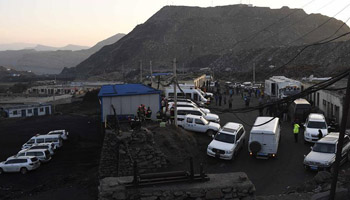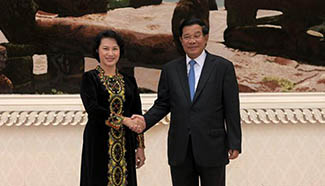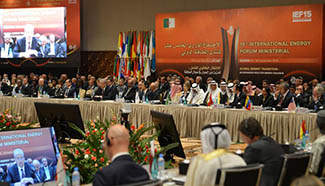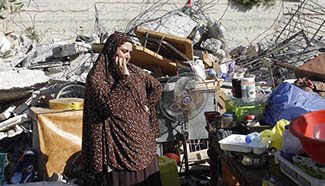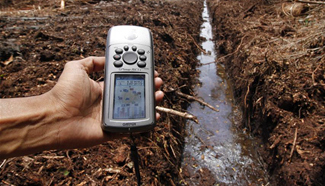Iraqi police officers seal off the explosion site at the New Baghdad district, in eastern Baghdad, Iraq, on Sept. 27, 2016. The Islamic State (IS) group on Tuesday claimed responsibility for two suicide bomb attacks at busy commercial areas in the Iraqi capital of Baghdad that killed a total of 15 people and wounded 59 others, the group said in an online statement. (Xinhua/Khalil Dawood)
BAGHDAD, Sept. 27 (Xinhua) -- The Islamic State (IS) group on Tuesday claimed responsibility for two suicide bomb attacks at busy commercial areas in the Iraqi capital of Baghdad that killed a total of 15 people and wounded 59 others, the group said in an online statement.
One of the group's suicide bombers, nicknamed Abu Ayyub al-Iraqi, detonated his explosive vest at a crowd of Shiite people in New Baghdad district in eastern Baghdad, while another suicide bomber struck Baiyaa district in southern Baghdad, according to a brief statement, of which the authenticity could not be independently verified.
Earlier, a police source anonymously told Xinhua that one of the attacks occurred in the morning when a suicide bomber detonated his explosive vest at a busy commercial area near a post office in New Baghdad, killing seven people and wounding 29 others.
The massive blast destroyed several nearby shops and civilian cars, the source said.
Hours later, another suicide bomber wearing an explosive vest blew himself up at a busy area in Baiyaa district in southern Baghdad, leaving up to eight people killed and some 30 others wounded, the source added.
Earlier, the source said that the suicide attack in Baiyaa left five people killed and 15 wounded citing initial report.
Following the two attacks, Baghdad authorities intensified security measures in checkpoints across the capital, and blocked several neighborhoods for fear of more deadly attacks, the source said.
Terrorist acts, violence and armed conflicts killed 691 Iraqis and wounded 1,016 others in August across Iraq, the United Nations Assistance Mission for Iraq said earlier.
Many blame the current chronic instability, cycle of violence, and the emergence of extremist groups, such as the IS, on the U.S. that invaded and occupied Iraq in March 2003.







